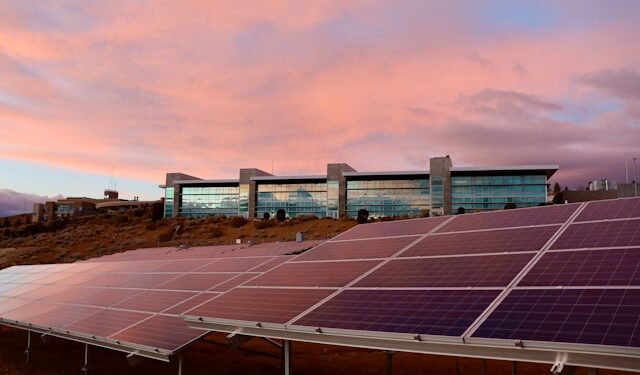As energy costs continue to rise, many homeowners are exploring renewable energy solutions to reduce their electricity bills and carbon footprint. Solar energy has gained immense popularity as a sustainable and cost-effective option for residential use. But is solar energy right for your home? In this guide, we’ll explore how solar panels work, the pros and cons of solar energy, financial considerations, and key factors to assess before installation.
How Do Solar Panels Work?
Solar panels convert sunlight into electricity using photovoltaic (PV) cells. These cells absorb sunlight and generate direct current (DC) electricity, which is then converted into alternating current (AC) electricity through an inverter. AC electricity powers household appliances and can be stored in batteries for later use.
There are different types of solar systems:
- Grid-tied systems connect to the local electricity grid, allowing homeowners to use solar power while still having access to traditional electricity when needed.
- Off-grid systems operate independently, relying on battery storage to provide power when sunlight is unavailable.
Pros and Cons of Solar Energy
Pros:
- Lower electricity bills: Solar panels for home use can significantly reduce monthly energy expenses. Some homeowners even generate surplus electricity, which can be sold back to the grid through net metering.
- Eco-friendly and sustainable: Solar energy is a clean, renewable resource that reduces dependence on fossil fuels and lowers carbon emissions.
- Potential tax incentives and rebates: Many governments offer financial incentives, such as tax credits and rebates, to offset the initial cost of installation.
Cons:
- High initial cost: The cost of solar panels and installation can be expensive, though financing options can help make it more affordable.
- Efficiency depends on location and weather: Solar energy efficiency varies based on geographical location, sunlight exposure, and seasonal changes.
- Requires roof space and structural compatibility: Not all homes have the necessary roof space or structure to support solar panels.
Costs and Financial Considerations
The cost of solar panels depends on factors such as system size, installation complexity, and local incentives. On average, residential solar panel installation can range from $10,000 to $30,000 before incentives. However, homeowners can explore several financing options:
- Solar loans allow homeowners to purchase solar systems with monthly payments.
- Leases and power purchase agreements (PPAs) enable homeowners to use solar power without owning the system, reducing upfront costs.
- Federal and state incentives can significantly lower the total cost of installation.
The return on investment (ROI) varies, but most homeowners recover their initial costs within 5 to 10 years through energy savings and incentives.
Key Factors to Consider Before Installing Solar Panels
Before investing in solar energy, homeowners should evaluate:
- Sunlight exposure and location: Homes in sunny regions benefit the most from solar energy, while shaded areas may experience lower efficiency.
- Roof condition and orientation: South-facing roofs with minimal obstructions yield the best results. Older or damaged roofs may require repairs before installation.
- Local regulations and utility policies: Some areas have restrictions or limitations on solar panel installation and net metering programs.
Installation Process and What to Expect
Installing home solar panels involves several steps:
- Site assessment: A solar provider evaluates the home’s energy needs, roof condition, and solar potential.
- System design and permitting: Engineers design a system tailored to the home, and necessary permits are obtained.
- Installation: Solar panels, inverters, and other components are installed, usually within a few days.
- Inspection and activation: After installation, local authorities and utility companies inspect the system before activation.
Choosing a reputable solar provider is crucial to ensure a smooth and efficient installation process.
Conclusion
Solar energy offers a sustainable and cost-effective way to power homes while reducing electricity bills and environmental impact. However, it’s essential to consider factors such as cost, location, and roof suitability before making a decision. By evaluating your home’s solar potential and exploring available incentives, you can determine whether investing in solar panels is the right choice for your energy needs.





